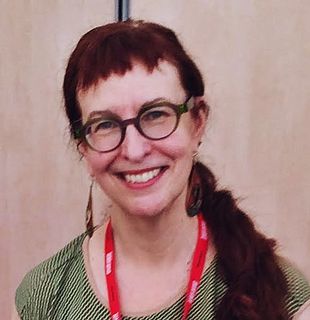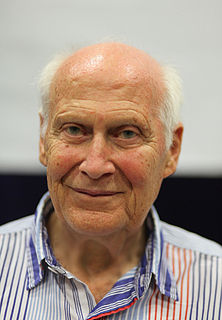A Quote by Delia Sherman
Many fairy tales and ballads present us with animals who are nobler, truer, and kinder than the greedy human beings who desire to possess them. I guess I tend to read these stories as very early (and possibly unconscious) feminist texts.
Related Quotes
In the beginning, I want to say something about human greatness. Some time ago, I was reading texts of Kungtse. When I read these texts, I understood something about human greatness. What I understood from his writings was: What is greatest in human beings is what makes them equal to everybody else. Everything else that deviates higher or lower from what is common to all human beings makes us less. If we know this, we can develop a deep respect for every human being.
For most of human history, 'literature,' both fiction and poetry, has been narrated, not written — heard, not read. So fairy tales, folk tales, stories from the oral tradition, are all of them the most vital connection we have with the imaginations of the ordinary men and women whose labor created our world.
I love monsters, I love creatures, I love beings, I love aliens. That's more supernatural and more the stuff of fairy tales. Fairy tales are as ancient as we are. I love those stories. I think they're really interesting because they always have more than simply the fright aspect. There's something deeply psychological.
[Fairy tales] are like a journey to the woods and the many ways you can get lost. Some people say it's not a good idea to read fairy tales to anyone under the age of eight because they are brutal and raw. When I was a kid I often felt that kids's books were speaking down to me, but I never felt that way about fairy tales. They are bloody and scary, but so is life.
Though now we think of fairy tales as stories intended for very young children, this is a relatively modern idea. In the oral tradition, magical stories were enjoyed by listeners young and old alike, while literary fairy tales (including most of the tales that are best known today) were published primarily for adult readers until the 19th century.
Fairy tales have always been about getting through the worst of everything, the darkest and the deepest and the bloodiest of events. They are about surviving, and what you look like when you emerge from the trial. The reason we keep telling fairy tales over and over, that we need to keep telling them, is that the trials change. So the stories change too, and the heroines and villains and magical objects, to keep them true. Fairy tales are the closets where the world keeps its skeletons.
I have been writing fairy tales for as long as I can remember. Not much has changed in terms of my natural attraction to the narrative techniques of fairy tales. My appreciation of them in the traditional stories has deepened, especially of flat and unadorned language, intuitive logic, abstraction, and everyday magic.
The intelligence displayed by many dumb animals approaches so closely to human intelligence that it is a mystery. The animals see and hear and love and fear and suffer. They use their organs far more faithfully than many human beings use theirs. They manifest sympathy and tenderness toward their companions in suffering. Many animals show an affection for those who have charge of them, far superior to the affection shown by some of the human race. They form attachments for man which are not broken without great suffering to them.



































